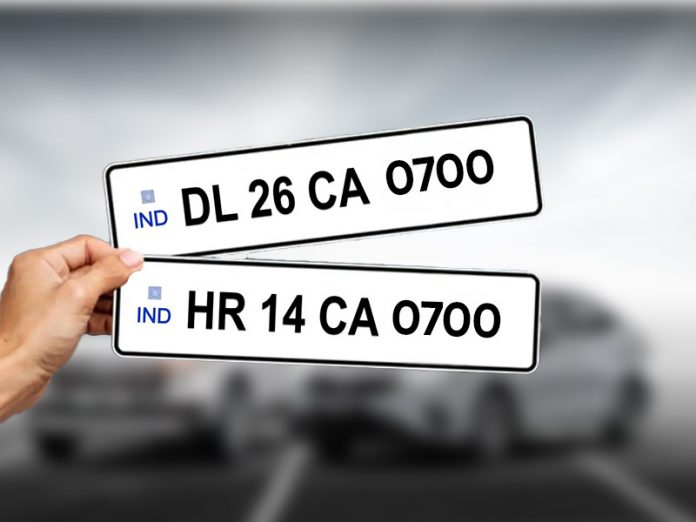1 Ton Pickup Trucks: The Unrivaled Workhorses of the Road pickup.truckstrend.com
In the realm of pickup trucks, where capability meets versatility, the "1 Ton" designation stands as a symbol of ultimate power and unwavering durability. Far beyond mere transportation, 1-ton pickup trucks are purpose-built machines designed to conquer the most demanding tasks, from hauling immense payloads across construction sites to towing colossal recreational vehicles across continents. For individuals and businesses alike who demand the absolute maximum in performance, reliability, and sheer strength, the 1-ton pickup truck is not just a choice—it’s an indispensable partner. This comprehensive guide will delve into what defines these heavy-duty titans, their capabilities, critical considerations, and what makes them the undisputed champions of the heavy-duty segment.
Understanding the "1 Ton" Designation
1 Ton Pickup Trucks: The Unrivaled Workhorses of the Road
The term "1 Ton" is a legacy designation that, in modern terms, is more of a historical reference than a literal measure of payload capacity. Historically, a 1-ton truck was engineered to carry approximately 2,000 pounds (one ton) in its bed. Today, modern 1-ton trucks, such as the Ford F-350, Ram 3500, and Chevrolet Silverado 3500HD/GMC Sierra 3500HD, are engineered to handle significantly more, often boasting payload capacities well in excess of 5,000 to 7,000 pounds, and even more with specific configurations.
Instead of a literal "ton," the classification primarily distinguishes these vehicles as heavy-duty pickups (often referred to as Class 3 trucks, with some overlapping into Class 2b, based on Gross Vehicle Weight Rating or GVWR) from their lighter 1/2-ton (Class 2a) and 3/4-ton (Class 2b) counterparts. The true measures of a 1-ton truck’s capability lie in its Gross Vehicle Weight Rating (GVWR – the maximum allowable weight of the fully loaded truck, including passengers and cargo) and its Gross Combined Weight Rating (GCWR – the maximum allowable weight of the truck and a fully loaded trailer). These ratings are far more indicative of their formidable hauling and towing prowess.
Key Characteristics and Unmatched Capabilities
What sets 1-ton pickup trucks apart is a combination of specialized engineering and robust components designed for extreme duty:
- Powertrain Dominance: The heart of a 1-ton truck is its engine. While powerful gasoline V8s are available, the segment is largely defined by its high-torque diesel engines (e.g., Ford’s Power Stroke, Ram’s Cummins, GM’s Duramax). These turbo-diesel powerhouses deliver immense low-end torque, essential for getting heavy loads moving, and often boast superior fuel efficiency when under load, along with exceptional longevity.
- Heavy-Duty Chassis and Suspension: Built on robust, fully boxed frames, 1-ton trucks feature reinforced suspension components. This includes heavy-duty leaf springs, often combined with coil springs or available air suspension systems for enhanced ride quality and load leveling. This rigid foundation is critical for maintaining stability and control with massive weights.
- Braking Systems: Given the immense loads they can handle, 1-ton trucks are equipped with significantly larger and more powerful braking systems, often featuring exhaust brakes on diesel models, to ensure safe stopping distances.
- Drivetrain Options: Buyers can choose between two-wheel drive (4×2) and four-wheel drive (4×4) configurations, along with various axle ratios to optimize for either maximum towing capacity or slightly better unloaded fuel economy.
- Single vs. Dual Rear Wheels (SRW vs. DRW): Many 1-ton trucks offer a Dual Rear Wheel (DRW) option, commonly known as a "dually." This configuration adds two extra wheels to the rear axle, significantly increasing the truck’s payload capacity and providing superior stability, especially when towing large fifth-wheel or gooseneck trailers.

Who Needs a 1 Ton Pickup? Benefits and Use Cases
The target audience for a 1-ton pickup truck is diverse but united by a common need for unparalleled capability:

- Commercial and Industrial Applications:
- Construction: Hauling heavy equipment, materials, and trailers.
- Agriculture: Transporting livestock trailers, feed, and farm machinery.
- Landscaping: Moving large quantities of soil, rock, and equipment.
- Service Industries: Mobile workshops, utility service, and heavy equipment repair.
- Hot Shot Trucking: For small businesses needing to transport goods quickly without needing a full semi-truck.

- Serious Recreational Enthusiasts:
- RV Owners: Towing the largest fifth-wheel travel trailers and toy haulers.
- Equestrians: Transporting multi-horse trailers.
- Boat Owners: Launching and retrieving large, heavy watercraft.
- Payload and Towing Demands: When a 3/4-ton truck simply isn’t enough, or when the margin of safety for frequent heavy hauling is paramount.
- Durability and Longevity: These trucks are built to withstand constant stress, offering a longer lifespan and lower total cost of ownership for those who genuinely push their vehicles to the limit.
Choosing the Right 1 Ton Pickup: Important Considerations
Selecting the ideal 1-ton truck requires careful evaluation of your specific needs:
- Primary Use: Will you prioritize payload (e.g., carrying a slide-in camper) or towing (e.g., a large fifth-wheel)? This will influence your engine, axle ratio, and SRW/DRW choice.
- Engine Type (Gas vs. Diesel):
- Gas: Lower initial cost, simpler maintenance, quicker warm-up. Best for lighter, occasional heavy hauling, or shorter trips.
- Diesel: Higher initial cost, more complex maintenance (e.g., DEF fluid, specific filters), but offers superior towing power, better fuel economy under load, and exceptional longevity, making it the choice for consistent heavy use.
- Drivetrain (4×2 vs. 4×4): 4×4 offers superior traction for off-road conditions, slippery surfaces, or launching boats on steep ramps. 4×2 is cheaper, lighter, and slightly more fuel-efficient.
- Single Rear Wheel (SRW) vs. Dual Rear Wheel (DRW): DRW significantly boosts payload and stability, especially for fifth-wheel/gooseneck towing, but sacrifices some maneuverability and has higher tire costs. SRW is more nimble and better for daily driving if max capacity isn’t always needed.
- Cab and Bed Configuration: Regular Cab (2 doors), Extended/Quad Cab (small rear doors), or Crew Cab (4 full doors); Short Bed, Standard Bed, or Long Bed. Choose based on passenger needs and cargo length.
- Trim Level: From basic work truck trims (e.g., XL, Tradesman, WT) to luxurious models (e.g., Platinum, Limited, Denali) with advanced tech and comfort features. Balance your budget with desired amenities.
- Aftermarket Considerations: Be mindful that modifying suspension (e.g., lift kits) or tire size can impact payload and towing ratings.
Operating and Maintaining Your 1 Ton Pickup: Practical Advice
Maximizing the life and performance of your 1-ton truck involves smart operation and diligent maintenance:
- Understand Your Ratings: Always know your truck’s specific GVWR, GCWR, Payload Capacity, and Towing Capacity. Never exceed these limits. Overloading is dangerous and can void warranties.
- Proper Loading and Weight Distribution: For payload, distribute weight evenly in the bed, ensuring the heaviest items are forward of the rear axle. For towing, ensure proper tongue weight or kingpin weight to prevent trailer sway.
- Towing Best Practices:
- Pre-Trip Checks: Inspect tires (truck and trailer), lights, brakes, fluid levels, and hitch connection.
- Driving Habits: Anticipate stops, allow longer braking distances, maintain a safe following distance, and avoid sudden maneuvers.
- Trailer Brakes: Ensure your trailer has properly functioning brakes and a compatible brake controller in the truck.
- Follow Maintenance Schedules: Heavy-duty trucks, especially diesels, have specific maintenance requirements (e.g., more frequent oil changes, fuel filter replacements, DEF refills). Adhering to the manufacturer’s schedule is crucial for longevity and performance.
- Tire Care: Use load-rated tires appropriate for your truck’s GVWR and maintain proper inflation pressures.
Challenges and Solutions
While immensely capable, 1-ton trucks do present some challenges:
- Fuel Economy (Unloaded): While diesel models are efficient under load, both gas and diesel 1-tons will consume more fuel than smaller vehicles during daily, unloaded driving.
- Solution: Accept it as the trade-off for their capability. If you rarely tow or haul heavy, a smaller truck might be more economical.
- Maneuverability and Parking: Their large size, especially dually configurations, can make navigating tight spaces and parking lots challenging.
- Solution: Practice, utilize parking sensors and cameras, and be mindful of your vehicle’s dimensions.
- Purchase Price and Operating Costs: 1-ton trucks are a significant investment upfront, and their maintenance, insurance, and fuel costs are higher.
- Solution: Justify the cost by the work it enables. For commercial users, it’s an essential business tool. For recreational users, it’s the key to enjoying their passions safely.
- Ride Quality (Unloaded): Their stiff suspension, designed for heavy loads, can result in a firmer ride when empty.
- Solution: Higher trim levels often include features like air suspension to mitigate this. Some owners also add aftermarket air bags for improved ride when empty.
- CDL Requirements: Generally, a standard Class D (regular) driver’s license is sufficient for a 1-ton truck for personal use. However, a Commercial Driver’s License (CDL) might be required if the truck’s GVWR combined with the trailer’s GVWR (GCWR) exceeds 26,001 lbs AND the trailer itself has a GVWR over 10,000 lbs, or if you are using the truck for commercial purposes that require a CDL (e.g., for-hire transport of hazardous materials or a specific number of passengers). Always check local and federal regulations.
1 Ton Pickup Truck Estimated Price Table (MSRP Range)
Prices are highly dependent on trim level, engine choice, 4×2/4×4, SRW/DRW, and optional features. These are approximate MSRP ranges for base to high-end models before incentives.
| Make/Model | Base SRW Price Range (MSRP) | Base DRW Price Range (MSRP) | Key Engine Options (Gas/Diesel) | Max Payload (Approx. lbs)* | Max Towing (Approx. lbs)* |
|---|---|---|---|---|---|
| Ford F-350 Super Duty | $48,000 – $85,000 | $50,000 – $95,000 | 7.3L Gas V8, 6.7L Power Stroke Diesel V8 | 7,640 | 38,000 |
| Ram 3500 Heavy Duty | $49,000 – $88,000 | $51,000 – $98,000 | 6.4L Gas V8, 6.7L Cummins Turbo Diesel I6 (Standard & High Output) | 7,680 | 37,090 |
| Chevy Silverado 3500HD | $47,000 – $85,000 | $49,000 – $92,000 | 6.6L Gas V8, 6.6L Duramax Turbo Diesel V8 | 7,290 | 36,000 |
| GMC Sierra 3500HD | $48,000 – $90,000 | $50,000 – $95,000 | 6.6L Gas V8, 6.6L Duramax Turbo Diesel V8 | 7,290 | 36,000 |
*Note: Maximum payload and towing capacities are highly configuration-dependent (e.g., 4×2 vs. 4×4, SRW vs. DRW, axle ratio, specific engine, and trim). Figures represent the highest available in specific configurations and are for illustrative purposes. Always consult the manufacturer’s official specifications for the exact configuration you are considering.
Frequently Asked Questions (FAQ)
Q1: What does "1 Ton" actually mean in modern pickup trucks?
A1: Historically, it meant a 2,000-pound payload capacity. Today, it’s a classification for heavy-duty trucks (Class 3), indicating they are designed for much higher payloads (often 5,000-7,000+ lbs) and significantly greater towing capacities than 1/2-ton or 3/4-ton trucks.
Q2: Do I need a CDL (Commercial Driver’s License) to drive a 1-ton truck?
A2: Generally, no, not for personal use. A standard driver’s license is sufficient. A CDL may be required if your truck and trailer’s combined weight (GCWR) exceeds 26,001 lbs AND the trailer alone weighs over 10,000 lbs, or if you’re using the truck for specific commercial activities that mandate a CDL. Always verify with local and federal regulations.
Q3: Is diesel or gasoline better for a 1-ton truck?
A3: For consistent, heavy towing and hauling, diesel is generally superior due to its immense low-end torque, better fuel efficiency under load, and greater longevity. Gasoline engines are a good choice for lower initial cost and simpler maintenance, suitable for less frequent or lighter heavy-duty tasks.
Q4: What’s the difference between SRW (Single Rear Wheel) and DRW (Dual Rear Wheel)?
A4: SRW trucks have one wheel on each side of the rear axle. DRW (dually) trucks have two wheels on each side of the rear axle. DRW offers significantly higher payload capacity and greater stability for very heavy loads, especially fifth-wheel or gooseneck trailers, but they are wider and less agile.
Q5: Are 1-ton trucks good for daily driving?
A5: They can be, especially modern models with advanced interiors and ride-enhancing features. However, their size makes parking and navigating tight spaces challenging, and their unloaded fuel economy is lower than smaller vehicles. They are best suited for those who genuinely need their immense capability regularly.
Q6: How much can a 1-ton truck typically tow and haul?
A6: Modern 1-ton trucks can haul payloads ranging from approximately 4,000 to over 7,000 pounds. Their towing capacities are even more impressive, often ranging from 20,000 pounds for conventional towing to over 35,000 pounds for fifth-wheel/gooseneck towing, depending on the specific configuration.
Conclusion
The 1-ton pickup truck segment represents the pinnacle of utility and raw power in the automotive world. These are not merely vehicles; they are indispensable tools for those who tackle the toughest jobs and pursue the grandest adventures. While they come with a higher price tag and specific operational considerations, the unparalleled capabilities in towing, hauling, and sheer durability offer a return on investment that goes beyond financial metrics—it provides peace of mind, reliability, and the power to achieve what other vehicles simply cannot. For the serious worker, the dedicated enthusiast, or anyone with truly heavy demands, the 1-ton pickup truck stands as an unwavering testament to American engineering and an unrivaled workhorse for the road ahead.



